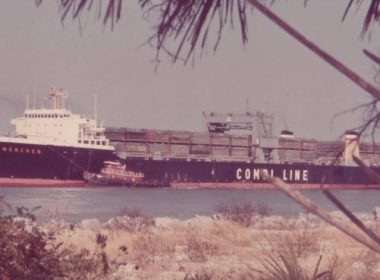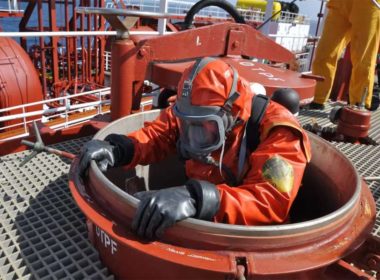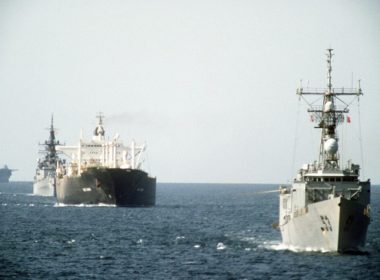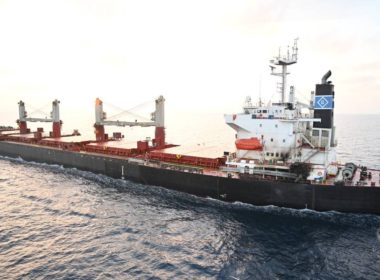COLUMN | Our sea freedoms at stake [Grey Power]

One does not wish to provoke any sort of angry response from readers, but is it not time that the definition of piracy was updated?
It was not that long ago that such was a crime punishable by ferocious penalties, even under quite liberal regimes, which were repealed only after somebody pointed out that there were really so few pirates at large on the world’s seas. But that was before Somalia became a failed state and the example of those who saw rich pickings at sea was followed by others in various locations.
Now, in addition to Houthis, various dissidents in the Gulf of Guinea and South-East Asia, seafarers have Iran’s Islamic Revolutionary Guard Corps to contend with as they attempt to assert their powers over the waters of the region. The seizure of the containership MSC Aries by armed force is an unpleasant reminder of the way that piracy has become almost institutionalised in the cause of a dangerous state.
“It has become perfectly clear that the Iranians and their Houthi allies are more than capable of establishing a ship’s links, no matter how tenuous, with Israel.”
Coming a few days after a senior Iranian commander had been boasting of the regime’s ability to close the Strait of Hormuz, it is more of a demonstration of capability than a hostile expression of intent and should be taken as such.
It could be argued that a ship with beneficial owners traceable to Israel ought perhaps to have had more cover as she moved through international waters en route to the Arabian Gulf and her passage to India. It has become perfectly clear that the Iranians and their Houthi allies are more than capable of establishing a ship’s links, no matter how tenuous, with Israel.
But as it has been pointed out, the warships are thinly spread over an extensive sea area and have plenty to occupy them in the Gulf of Aden and southern Red Sea. Moreover, this particular outrage is just the latest in a pattern in which the regime in Iran is seeking to effectively establish control of the whole Gulf by menacing the Hormuz choke point.
Would the Iranians, on whatever pretext, really attempt to close this important strait? It could be argued that if they are permitted to act incrementally in seizing individual ships and holding their crews to ransom, they are already advancing along this route, of assuming some sort of authority over international waters and need to be stopped.
By causing doubts and indecision in the minds of anyone operating ships in this area, and real anxiety among the seafarers at risk, and who would rather not end up as hostages, they will regard all they have done thus far as a success.
“It cannot be that large area of sea and routes important to world trade become viable only with the permission of a despotic regime exercising maritime suzerainty over international waters.”
Failure to act decisively to restrain these piratical attacks will embolden the more fanatical elements and encourage other regimes to behave in such a fashion. Last week, there were warnings about possible risks of getting too close to Algeria on a passage in the Mediterranean.
And it should not be forgotten that the crew of the car carrier Galaxy Leader remain in the hands of the Iranian proxy in Houthi-controlled Yemen, six months after their capture.
The Houthis meanwhile continue their attacks on passing shipping. Diplomatic initiatives, endless caveats about the risks of “escalating the conflicts in the region”, expressions of outrage by representative bodies, and the futile speeches emanating from the UN are regarded as so many empty words, easily shrugged off by people who will only be stopped by firm military means.
If the “freedom of the seas” is to mean anything, surely a line must be drawn and a more calibrated response to Iran’s maritime ambitions must be formulated by all states with appropriate capabilities. It cannot be that large area of sea and routes important to world trade become viable only with the permission of a despotic regime exercising maritime suzerainty over international waters.
Either we have international maritime law, or we descend into gradual anarchy in which the ruthless erode all freedoms. It matters to all of us and is a clear choice.








